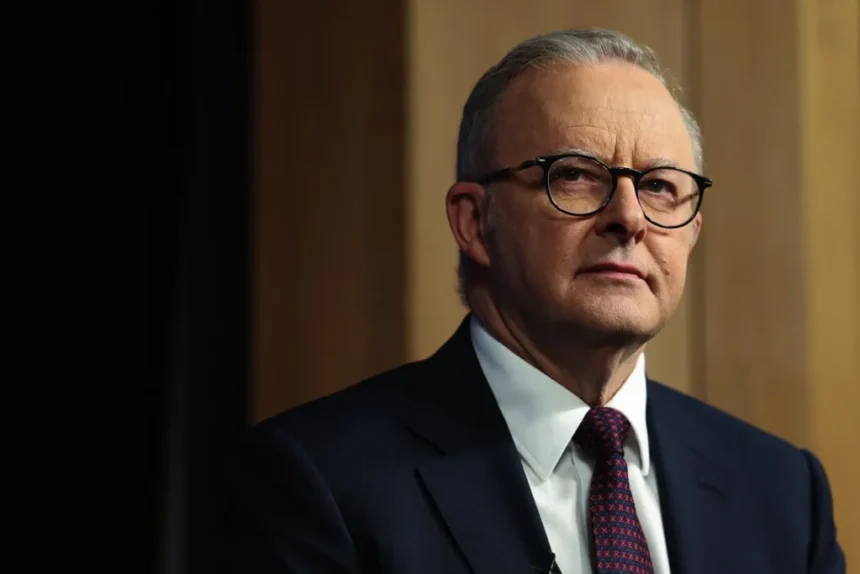Australian Prime Minister Anthony Albanese has accused his Israeli counterpart, Benjamin Netanyahu, of living in denial over the consequences of the war in Gaza.
According to BBC, Albanese announced Monday that Australia will recognize a Palestinian state at the UN General Assembly in September, following similar moves by the United Kingdom, France, and Canada.
He stated that frustration with the Israeli government influenced this decision, adding that Australians “want to see an end to killings and the cycle of violence.”
Israel, currently under increasing pressure to halt the Gaza conflict, has condemned the recognition of a Palestinian state as a reward for terrorism. Netanyahu called the decision by Australia and other allies “shameful.”
The Israeli government faces mounting criticism amid reports of widespread hunger in Gaza. According to the Hamas-administered Ministry of Health, five people, including a child, died from malnutrition in the last 24 hours, bringing the total deaths from starvation to 222, including 101 children.
Israel denies the existence of hunger in Gaza and accuses UN agencies of failing to receive aid at the borders for distribution. The UN rejects these claims, citing obstacles and delays in getting aid through Israeli-controlled areas.
Speaking to the Australian Broadcasting Corporation on Tuesday, Albanese said he spoke with Netanyahu last Thursday to inform him of Australia’s decision.
“The interruption of aid we’ve witnessed, followed by deaths at aid distribution points where people lining up for food and water are losing their lives, is simply unacceptable. And we have said so.”
“I spoke with Prime Minister Netanyahu. He reiterated what he had publicly stated — that he is in denial about the consequences being suffered by innocent people.”
Albanese earlier explained that the decision to recognize a Palestinian state followed commitments from the Palestinian Authority, which controls parts of the Israeli-occupied West Bank, that Hamas will not have a role in any future state.
Reactions in Australia have been mixed: The Executive Council of Australian Jewry called the decision a “betrayal,” while some Palestinian activists argue it is insufficient.
Opposition leader, conservative Sussan Ley, described the decision as “disrespectful” to the United States, a key Australian ally.
Earlier this month, a pro-Palestinian protest drew at least 90,000 people marching across Sydney Harbour Bridge, a day after a court ruling permitted the demonstration.







